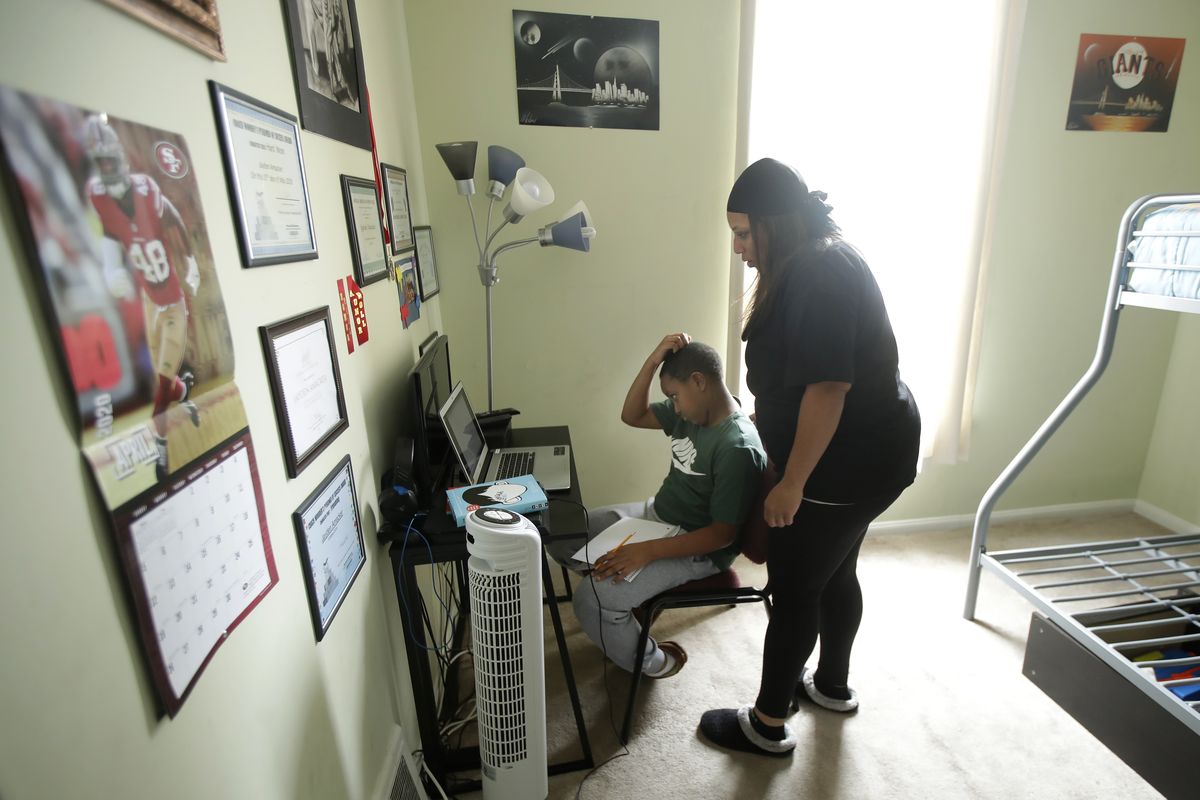Health at home: Exercise helps alleviate students’ anxiety as online learning is on the horizon

Moving from in class to online learning hasn’t been an easy adjustment for many children. It’s not surprising since anxiety can rear its head due to an abrupt change. And it’s hardly shocking that some children are stressed out by their new normal since the novel coronavirus has altered life since March.
Just a few weeks into the pandemic, Dr. Jacqueline Jones, author of “Medical Parenting: How to Navigate Health, Wellness & the Medical System With Your Child,” detailed how significant exercise is so that children, who no longer study inside bricks and mortar, can relax.
“It’s so important for children to get out and move and play and have fun,” Jones said while calling from her New York office. “Exercise helps a child physically and mentally, particularly when they are inside much of the time. There is a connection between physical play and a child’s mental state. Exercise definitely helps people not be so stressed out.”
Darius Howard, district manager of Spokane’s MUV Fitness, concurs with Jones. “The impact on children who exercise at least an hour a day is huge,” Howard said while calling from his North Spokane home. “Exercise is a form of stress. But it’s a good form of stress.
“After your body reaches a certain point during exercise, endorphins are released. It’s the same endorphins as if you were prescribed a drug. The endorphins are neurotransmitters. It helps you feel euphoric.”
Kids can certainly use a dose of euphoria since there is no end in sight for online education. According to Howard, children who exercise at least 30 minutes a day enjoy a number of benefits.
Exercise reduces the effects of anxiety and depression. Cardio instantly boosts mood and improves long-term self-esteem and cognitive functioning. Working out alleviates social withdrawal.
Those who engage in regular physical activity typically are better rested. “Your quality of sleep improves,” Howard said.
Students who obtain appropriate rest are typically more alert.
“You need to be wide awake and receptive in order to be successful in school,” Howard said.
“If you’re sleepy, you’re not going to retain information.”
Howard is in lock step with Dr. Gregory Charlop, author of “Why Doctors Skip Breakfast: Wellness Tips to Reverse Aging, Treat Depression and Get a Good Night’s Sleep.”
“It is critical for people to get enough sleep,” Charlop said while calling from his Pasadena, California, office. “We all need seven to eight hours a night. … Children need even more than that. It’s particularly important for children to get their sleep. It’s critical.”
According to MUV Fitness director Olito Thompson, it can’t hurt to raise the bar and push a child to get to the next level.
“It’s a great thing if a child, say a teenager, wants to challenge himself on the field, in the gym and in the classroom,” Thompson said.
Thompson, 26, knows what he’s talking about it since he’s lived it. The strapping and amiable fitness junkie set the Northern California football rushing record in 2013 before committing to play at Washington State University.
Thompson, who instructs at MUV Fitness in North Spokane, worked out Milo Condran, 15, on sled drills, which means pushing a 50-pound sled and executing 50 situps during the routine, which boosts quads and endurance. Thompson also set up tire flips, which builds leg strength. It’s quite the grind for a young man.
“But it’s a good thing,” Thompson said. “If you want to be an elite running back like Milo does, it’s about getting into shape. If you want to be great, push yourself in the gym and push yourself in the classroom.”
But for those who are casual athletes, the message from Howard is just to do something physical every day. “You don’t have to go to the gym if you’re a kid,” Howard said. “Ride a bike, walk, ride a scooter. Create an obstacle course at home.”
Howard’s athletic 5-year old daughter, who plays basketball and is a gymnast, broke her arm recently, but she is far from sedentary.
“My daughter wants to remain active, so right after she broke her arm, I went to Walmart and bought her a Nerf gun set. We go out and have Nerf wars. Be as creative as you can be. It helps if parents take part in the physical activity with their children. Parents help with their homework. Parents should toss a ball or run with their children.
“There’s no doubt that the more physically active children are, the less likely they’ll be depressed or anxious learning at home. They’ll also be happier. Getting out there and playing or doing something physical helps on all levels. If you end up enjoying sports and excelling in sports, perhaps you can become a student athlete.”
Howard, who played college basketball at Eastern Washington University, is impressed with the young athletes he’s worked with in Spokane.
“There’s a decent basketball community and a decent football community here,” Howard said. “The kids here can play. Compete and excel in sports. It’s a healthy choice on all levels. You feel good physically. You feel good about yourself, and you feel good about yourself as a student.”